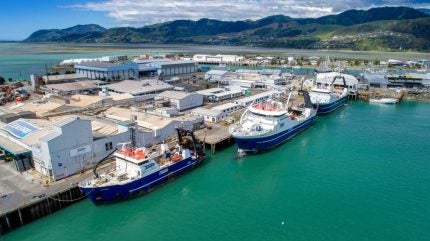
New Zealand seafood processor Sealord plans to close its factory in the port city of Nelson, putting 79 permanent jobs at risk.
In a statement today (5 September), Sealord said it had begun consultations with staff at the coated-products facility, where 57 production positions and 22 management or office-based roles are set to be “disestablished”.

Discover B2B Marketing That Performs
Combine business intelligence and editorial excellence to reach engaged professionals across 36 leading media platforms.
CEO Doug Paulin said: “Unfortunately, like many manufacturing businesses in New Zealand that have been forced to close in recent times, we are similarly affected by hugely challenging economic factors.
“Increasing operating costs, particularly labour and electricity, plus freight, exacerbated by requests for higher supermarket margins, means we must reconsider the way we manage our retail frozen branded business.
“Despite the best efforts and mahi of our workers, we may have to exit the frozen coated fish business that we have built up over many years.”
Paulin described Sealord as the “last significant” supplier of frozen coated fish products made in New Zealand.
Alongside the factory closure, Sealord is also proposing changes to the Nelson site collective agreement with unions.

US Tariffs are shifting - will you react or anticipate?
Don’t let policy changes catch you off guard. Stay proactive with real-time data and expert analysis.
By GlobalDataThis includes union workers in its land-based facilities, such as its wetfish factory, cold store, dry store, and by-products plant.
The closure proposal comes after a year-long review of Sealord’s operations, during which the company scrutinised expenditure, eliminated or left office-based salaried positions unfilled, and “significantly” reduced budgets, according to the statement.
Amid ongoing rescue efforts, Paulin added: “We’re reviewing land-based factory operations as we look at how we can reduce operating costs and improve the economic sustainability of production in Nelson.
“As part of this, we are hoping to agree changes to the collective agreement that will help keep Nelson land-based manufacturing operating.”
Meanwhile, Sealord is “investigating the possibility of processing and packaging coated products using Sealord-caught fish outside New Zealand in order to be able to continue to offer its coated frozen fish range in New Zealand and Australia”, the statement read.
The company confirmed the proposals will not impact its deep-sea fishing operations or its canned tuna product line.
Staff affected by the proposed factory closure have been invited to provide feedback, with the consultation period due to conclude on 26 September.
Sealord expects to finalise its decisions on both the factory closure and the collective agreement changes in October.
The company has faced challenges at its Nelson operations before.
In 2014, it announced plans to cut 97 jobs at its Nelson wet fish processing site, stating that the factory was “not economically viable” in its existing form.
At the time, the firm proposed shifting to a smaller operation focused on higher-value products.
Meanwhile, in 2023, Sealord acquired Independent Fisheries, becoming New Zealand’s largest seafood business.





